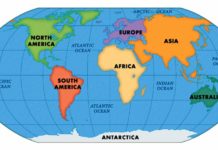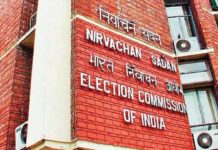 TOPIC – Vaccine skirmishes: On production of COVID-19 vaccine
TOPIC – Vaccine skirmishes: On production of COVID-19 vaccine
“IPR waiver will not bring immediate benefits; the effort must be to share the stockpile”
The Biden administration’s announcement that it would support a waiver on intellectual property rights (IPR) for the production of COVID-19 vaccines appeared to catch the world off-guard, on both sides of the argument. The original proposal for the relaxation of TRIPS for such vaccines in the context of the ongoing pandemic was drafted at the WTO by India and South Africa last year. Months before it was tabled, during the 2020 U.S. presidential election, erstwhile candidate Joe Biden vowed that should he win, he would “absolutely positively” commit to sharing vaccine technology with countries that needed it, perhaps anticipating the deep chasm of inequality in vaccine access. Now that his administration has proclaimed its intent to fulfil that promise, it must come as a bitter realisation that what sounds like a well-intentioned, pro-developing-countries policy stance has been rebuffed by major EU nations and met with counter-suggestions that might make even the most liberal U.S. Democrats uncomfortable. The first pushback salvo came from Germany which said that it would create “severe complications” for the production of vaccines, echoing the view of major pharma corporations. While French President Emmanuel Macron had appeared relatively less hostile to considering the proposal earlier, he lashed out at the “Anglo-Saxons” for impeding vaccine availability globally by blocking the export of ingredients. There are merits to the argument that an IPR waiver, even if it were to become a reality, may not entirely resolve the vaccine deficit issue in countries suffering the worst of the pandemic now. First, the grant of a waiver would have to be accompanied by a “tech transfer” that provides generic pharmaceutical manufacturers with the requisite trained personnel, raw materials and hi-tech equipment and production know-how. Second, there must be a scientifically convincing answer to the question of how any vaccine then produced by these generic manufacturers — in all likelihood, years from now — would pass the tests of safety, immunogenicity and protective efficacy. Third, the impact on global supply chains for vaccine production should be examined so major disruptions might be avoided. Finally, alternative options to urgently address vaccine shortfalls should be considered, including developed nations sharing a significantly greater part of their vaccine stockpiles, particularly in cases where the latter exceed projected domestic need. Indeed, there is speculation that the intention behind Mr. Biden’s waiver proclamation might be in favour of the last outcome, essentially a tactic to persuade pharmaceutical companies to accept less painful measures including sharing some of their technology willingly, agreeing to joint ventures to increase global production expeditiously, and simply produce more doses at affordable prices to donate directly to where the need is most severe, especially India.
















